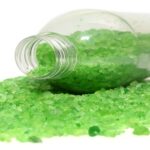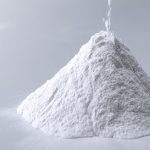Chemical reagents play a critical role in driving innovation and progress in the pharmaceutical industry. These essential compounds are the backbone of pharmaceutical research, development, and manufacturing processes. From enabling complex chemical reactions to ensuring product safety and efficacy, chemical reagents have transformed the pharmaceutical sector into a hub of innovation, delivering life-saving drugs and therapies worldwide.
Request Sample Report of Chemical Reagents Market: https://www.vantagemarketresearch.com/chemical-reagents-market-3253/request-sample
Introduction to Chemical Reagents in Pharmaceuticals
Chemical reagents are substances or compounds used to create chemical reactions during laboratory analysis or manufacturing processes. In pharmaceuticals, they are crucial for synthesizing active pharmaceutical ingredients (APIs), analyzing biological samples, and developing diagnostic solutions.
Key Characteristics of Chemical Reagents in Pharmaceuticals
- Purity: High purity levels are essential to avoid interference in drug synthesis.
- Reactivity: Enables efficient chemical transformations.
- Specificity: Ensures precise targeting during reactions or analyses.
- Stability: Provides consistent performance under various conditions.
The pharmaceutical industry’s reliance on chemical reagents underscores their significance in creating safe, effective, and high-quality medicines.

Key Trends Driving the Use of Chemical Reagents in Pharmaceuticals
Advanced Drug Discovery Techniques
Modern drug discovery employs cutting-edge techniques like high-throughput screening (HTS) and computational modeling. Chemical reagents facilitate:
- Screening of Compounds: High-throughput systems utilize reagents to evaluate the biological activity of thousands of compounds in a short time.
- Target Validation: Reagents such as inhibitors or activators help confirm potential drug targets.
Biopharmaceutical Growth
With the rise of biologics like monoclonal antibodies, vaccines, and gene therapies, the demand for specialized chemical reagents has surged. Examples include:
- Buffers and Enzymes: Used in bioprocessing.
- Labeling Reagents: For protein and nucleic acid tracking.
Emphasis on Green Chemistry
Pharmaceutical companies are prioritizing sustainability, adopting green chemistry principles to reduce waste and energy consumption. Reagents designed for:
- Catalytic Efficiency: Enable high-yield reactions with minimal environmental impact.
- Solvent-Free Reactions: Reduce reliance on toxic solvents.
Personalized Medicine
Reagents play a pivotal role in the development of personalized therapies, including:
- Companion Diagnostics: Reagents are used to determine patient-specific drug responses.
- Biomarker Identification: Facilitates targeted therapies based on genetic profiles.
Regulatory Compliance and Quality Control
Stringent regulations require pharmaceutical companies to adopt high-quality reagents for:
- Analytical Testing: Ensuring drug purity and potency.
- Stability Studies: Validating the shelf-life of pharmaceutical products.
Innovations in Chemical Reagents for Pharmaceuticals
Enzyme-Based Reagents
Enzymes are increasingly used as biocatalysts in drug synthesis due to their specificity and eco-friendliness. Examples include:
- Lipases: For esterification and transesterification reactions.
- Proteases: For peptide synthesis.
Peptide Coupling Reagents
Peptides are essential in drug development, particularly for treating chronic diseases. Innovations in coupling reagents, such as HATU and DIC, enhance peptide synthesis efficiency.
Fluorescent and Luminescent Reagents
Advanced imaging techniques rely on these reagents for:
- Cell-Based Assays: Tracking drug interactions at the cellular level.
- High-Sensitivity Diagnostics: Detecting diseases in early stages.
CRISPR Reagents
The advent of CRISPR technology has revolutionized genetic engineering. Reagents used in CRISPR-based therapies include:
- Nucleases: For precise gene editing.
- Guide RNA Synthesizers: Ensuring accurate targeting of genetic sequences.
Green Solvent Reagents
Replacing traditional organic solvents, green solvents like ionic liquids and supercritical fluids are gaining traction for their reduced environmental footprint.
Applications of Chemical Reagents in the Pharmaceutical Industry
Drug Discovery and Development
Chemical reagents are indispensable in the early stages of drug development:
- Hit-to-Lead Optimization: Facilitates structural modifications to enhance compound efficacy.
- Reaction Catalysts: Enables the creation of complex molecules.
API Synthesis
Reagents are critical in synthesizing APIs, the active components of drugs:
- Oxidizing and Reducing Agents: For altering molecular structures.
- Cross-Coupling Reagents: For building complex chemical frameworks.
Analytical Testing
Ensuring the quality and safety of pharmaceuticals involves rigorous testing using chemical reagents:
- Chromatographic Reagents: For separating and analyzing mixtures.
- Titrants: For determining compound concentrations.
Diagnostic Reagents
In diagnostics, reagents play a role in detecting diseases and monitoring treatment efficacy:
- ELISA Reagents: For enzyme-linked immunosorbent assays.
- PCR Reagents: Essential for polymerase chain reaction tests, especially in infectious disease detection.
Bioprocessing
Chemical reagents are used in scaling up the production of biologics:
- Buffer Systems: Maintain pH levels during fermentation.
- Stabilizers: Protect sensitive biological molecules.
Regional Dynamics in the Chemical Reagents Market for Pharmaceuticals
North America
- Leading Market: High investment in pharmaceutical R&D drives demand for advanced reagents.
- Biotech Boom: Growth in biologics and personalized medicine is propelling reagent innovation.
Europe
- Sustainability Focus: Strict environmental regulations are encouraging the use of green reagents.
- Collaborative Ecosystem: Partnerships between academia and industry foster reagent advancements.
Asia-Pacific
- Emerging Economies: Countries like China and India are investing heavily in pharmaceutical manufacturing.
- Cost-Effective Production: Availability of low-cost raw materials supports reagent production.
Latin America and Middle East
- Growing Markets: Increasing healthcare investments are boosting pharmaceutical activities.
- Focus on Diagnostics: Rising prevalence of diseases is driving demand for diagnostic reagents.
Challenges in the Use of Chemical Reagents
Regulatory Hurdles
Compliance with stringent pharmaceutical regulations requires consistent reagent quality, which can be challenging for manufacturers.
Supply Chain Disruptions
The global nature of reagent production makes the industry susceptible to supply chain challenges, especially during crises like the COVID-19 pandemic.
High Costs of Advanced Reagents
Innovative reagents often come with high costs, which can limit their accessibility for smaller pharmaceutical companies.
Environmental Concerns
While green chemistry is gaining momentum, many reagents still rely on toxic solvents and processes, raising sustainability concerns.
Recent Developments in Chemical Reagents for Pharmaceuticals
AI-Powered Reagent Discovery
Artificial intelligence is being used to identify novel reagents and optimize existing ones for drug development.
Bio-Based Reagents
The rise of bio-based reagents derived from renewable sources is addressing environmental challenges in pharmaceutical manufacturing.
Custom Synthesis Services
Pharmaceutical companies are increasingly collaborating with reagent manufacturers for customized solutions tailored to specific applications.
Expansion of Diagnostic Reagents
Advances in diagnostic reagents, particularly in molecular biology, are supporting the fight against emerging diseases.
Future Outlook: Opportunities in Chemical Reagents for Pharmaceuticals
Rise of Biologics
As the demand for biologics grows, so will the need for specialized reagents tailored for protein and nucleic acid handling.
Digital Integration
Automation and digital technologies will streamline reagent use in laboratories, enhancing efficiency and accuracy.
Expansion in Emerging Markets
Emerging economies are expected to drive future growth, offering opportunities for reagent manufacturers to expand their reach.
Sustainability Initiatives
With a global push for sustainability, the development of eco-friendly reagents will become a priority for the pharmaceutical industry.
For more information about this report visit: https://www.vantagemarketresearch.com/industry-report/chemical-reagents-market-3253
Conclusion
Chemical reagents are at the forefront of pharmaceutical innovation, enabling breakthroughs in drug discovery, diagnostics, and manufacturing. Their versatility, specificity, and adaptability make them indispensable tools for creating life-saving treatments and therapies.
As the pharmaceutical industry evolves to meet the challenges of sustainability, personalized medicine, and regulatory compliance, the role of chemical reagents will continue to expand. By embracing innovations and addressing existing challenges, chemical reagents will remain pivotal in revolutionizing healthcare for years to come.
For more insights into the Chemical Reagents Market and its transformative impact on pharmaceuticals, explore our comprehensive research study on Vantage Market Research.
![[Market Research Reports] – Research Google News Blog | VMR.Biz](https://www.vmr.biz/wp-content/uploads/2022/12/logo-removebg-preview.png)











